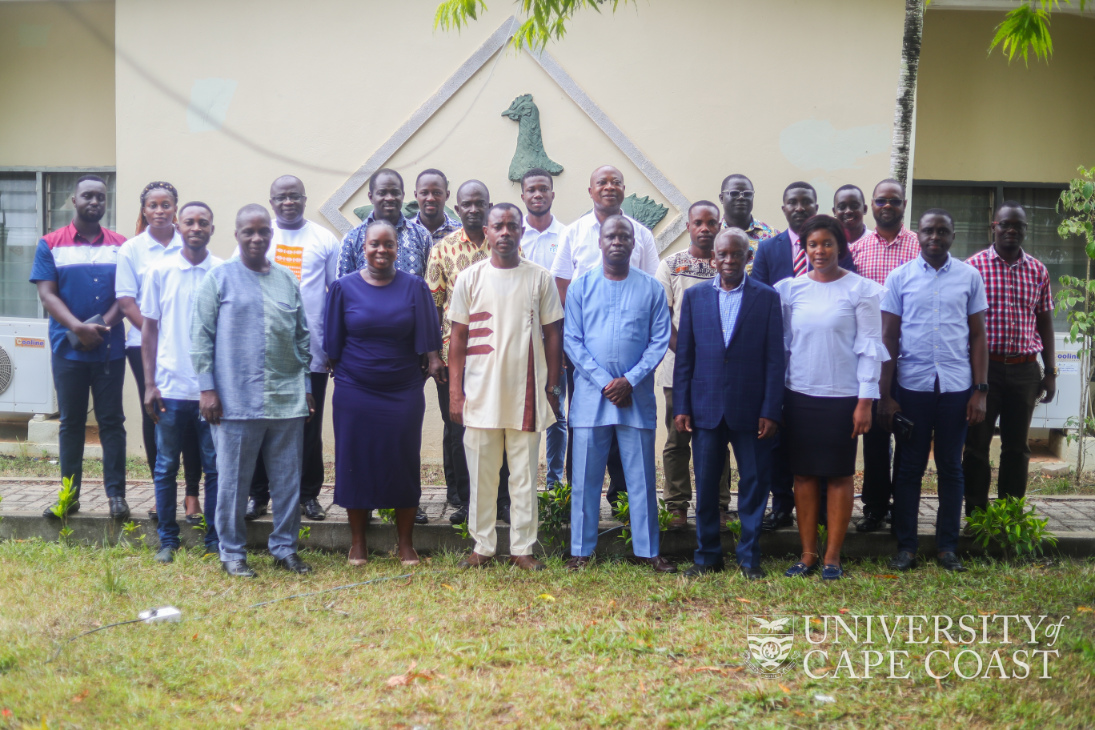The Department of Soil Science has started engagements with key stakeholders towards building the needed human and technological capacities necessary for the fertilizer industry in Ghana.
For that matter, the Department of Soil Science engaged key stakeholders in a one-day workshop to introduce the state of the curriculum being developed and to elicit their inputs in order to make the programme respond to the needs of the fertilizer industry.
The programme is also intended to imbibe in the next generation of scientist, 21st century skills, knowledge and attitudes that are very relevant for the Fertilizer Science and Soil Health Programme to be hosted in the University of Cape Coast (UCC).
The Head of the Department, Prof. Kwame Agyei Frimpong, speaking to reporters on the sidelines of the stakeholder engagement meeting, explained that the Government of Ghana had signed an agreement with Morocco’s Office Cherifien de Phosphates (OCP) to build a fertilizer plant in Ghana by 2024.
He noted that with the discovery of oil in large quantities in Ghana, there was the availability of adequate by-products for manufacturing of high-quality tailor-made fertilizers for the country’s agricultural and other needs.
In order to boost the fertilizer industry in Ghana, Prof. Frimpong said the Department of Soil Science was tasked to train expertise to ensure the production of quality and affordable fertilizer in large quantities which in the long run could also rake in some foreign exchange for the country.
Stakeholders who participated in the stakeholder’s engagement meeting
He mentioned numerous benefits the fertilizer course would bring to the University in particular and the nation as a whole.
At the level of the University, he indicated the programme which was the first in the subregion would boost visibility of the University and also attract scholars from all over the world for exchange of knowledge and expertise. “This programme will also attract international students from our neighbouring countries and other parts of Africa,” he stressed.
Prof. Frimpong noted that at the national level, the programme would produce expertise to help expand the fertilizer industry and also help in accelerating the country’s quest towards boosting food and nutrition security.
“Ghana depends solely on importation of fertilizer from other countries to support the country’s agriculture and industrial needs. This programme has come at an opportune time for us to manufacture our own fertilizers to help our farmers and also for export” he stated.
Prof. Frimpong said the Department would continue to engage all stakeholders holistically to firm up the curriculum before the programme would be introduced at UCC.
Present at the programme were the Dean, School of Agriculture, Prof. Henry De-Graft Acquah, Head of Department of Geography and Regional Planning, Prof. Kofi Nyarko; Head of Department of Agronomy, University for Development Studies, Dr. Vincent Kojo Avornyo, some officials from International Fertilizer Development Centre and OCP, Ministry of Food and Agriculture as well as faculty from the School of Agriculture and other Schools within the University of Cape Coast, UCC.


